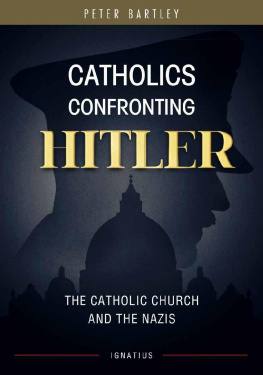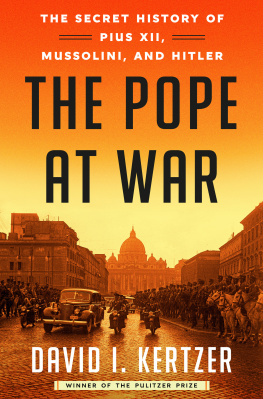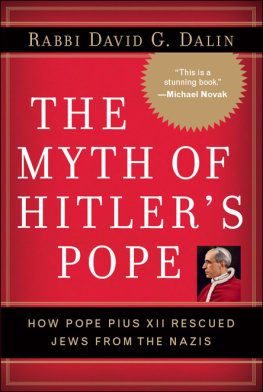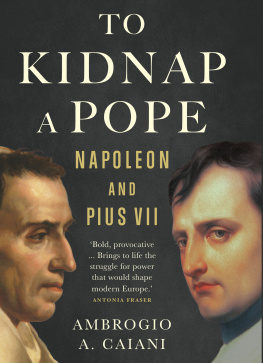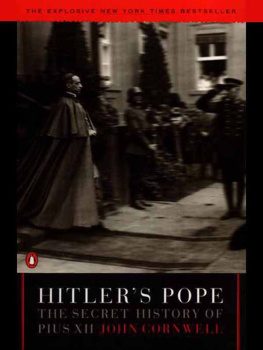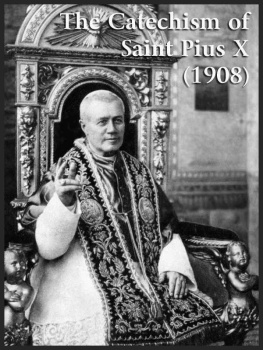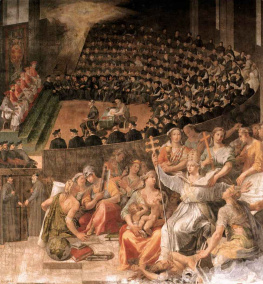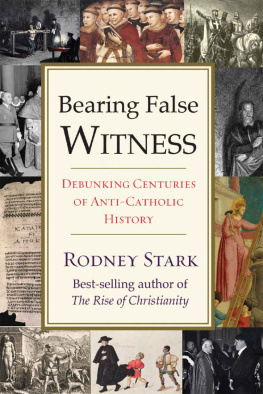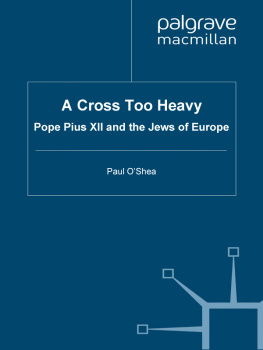CONTINUUM
The Tower Building, 11 York, London, SE1 7NX
80 Maiden Lane, Road Suite 704, New York, NY 10038
www.continuumbooks.com
Gerard Noel 2008
All rights reserved. No part of this publication may be reproduced or transmitted in any form or by any means, electronic or mechanical, including photocopying, recording or any information storage or retrieval system, without prior permission from the publishers.
First published 2008
British Library Cataloguing-in-Publication Data
A catalogue record for this book is available from the British Library.
ISBN 9781847063557
Digital Conversion by Pindar NZ
Introduction
The title of this book was carefully chosen. A quest for Eugenio Pacelli has developed during the half-century since Pope Pius XII died in 1958. This particular quest for Pacelli, however, comes to quite different conclusions about Pius XII. Furthermore it is based, in part, on very different and more personal sources from those on which other authors have relied. Below is a brief explanation of why the present study is different from any previous book about this controversial figure, leading to a discovery of the man I have called the hound of Hitler.
In 1948, due to a curious and accidental set of circumstances, I had the fortunate experience of attending, with my mother, a private audience with Pope Pius XII. My interest in this extraordinary man began with that meeting. The audience resulted from a casual remark made to Monsignor David Cashman, secretary to Archbishop William Godfrey, then Apostolic Delegate to Great Britain. Both men were good friends of our family.
Monsignor Cashman, on hearing that we would shortly be visiting Rome, said he would prepare a letter for Archbishop Godfrey to sign. We could present this letter at the Vatican; it would contain a request for an audience with the Pope. Such an audience, we presumed, would involve attending one of the weekly public appearances held by him or would, at most, include us in a semi-private audience where the Pope, moving around one of the ante-chambers of the apostolic palace, would stop at random, chatting to some individuals and then imparting his blessing upon all present.
Our visit to Rome was set for July. By then the Pope had departed for his summer residence at Castel Gandolfo on the shores of Lake Albano, about 15 miles from Rome. We duly presented our letter and subsequently received a note requesting our presence at Castel Gandolfo, a few days later. On arrival, we were directed to sit with a group of people waiting in a large ante-chamber. Eventually a French Monsignor came up to us and, having ascertained our names, asked us to follow him.
We still didnt realize what was happening. The truth suddenly dawned on us when the Monsignor, in answer to my question in halting Italian, stated that we were, of course, to be alone with the Holy Father.
At the end of a long corridor, the Monsignor threw open a door and ushered us into the Popes study. There was Pius XII sitting bolt upright at his large desk. We were shown to chairs in front of the desk and the Monsignor withdrew. Having until the last minute been unprepared for this bombshell we, perhaps foolishly, had not prepared anything in particular to talk to the Pope about. I told him I had just left Oxford, to which he said, Very fine! (a favourite English phrase of his). He went on to say that the Complete Oxford Dictionary constituted an important item in his library. This, also, he found very fine.
After a slightly awkward pause, my mother mentioned the names of some friends and cousins in America who, she knew, had met the pontiff during his visit there. Pope Pius seemed interested and this topic eked out the remaining minutes of our audience, interspersed with occasional interjections by the Holy Father, mostly to describe something as very fine.
The French Monsignor returned about fifteen minutes later and, after the Pope had given each of us a rosary wrapped in square white-and-blue envelopes, engraved in gold with the papal coat of arms we respectfully took our leave. We made our way to our hired car and sank down on the back seat, absolutely stunned, still barely able to believe what had just happened. When we returned to London, I asked Monsignor Cashman what on earth he had put in the Delegates introductory letter to the Maestro di Cameras office at the Vatican. He later brought a copy of the letter for me to read over lunch. It stated that my father had been a privy chamberlain to Pope Pius XI, who had given First Holy Communion to my sister in his private chapel. It also mentioned that our family was collaterally descended from saints Thomas More, John Fisher and Blessed Margaret Clitherowe. The letter also declared that my fathers family (Noel-Gainsborough) was a distinguished old Catholic family (which was not entirely true). The waggish David Cashman and I enjoyed a good chuckle.
However, the experience of our unexpected private audience with Pope Pius XII provided a memory which has never faded. To look across the papal desk into the deep-set, dark, expressive eyes of this awe-inspiring Pope was a supremely evocative experience. From that encounter I began to take an active interest in the life and character of Pius XII, Eugenio Pacelli. This interest was pursued fitfully at first, but increased considerably as time went on. Rolf Hochhuths provocative play The Representative (1963) set in motion a process of intense speculation, associated ever since with the quest for Pacelli.
Many people helped me in my personal quest. The most important was Malachi Martin, a charming and highly articulate American of Irish origin who for several years, as a Jesuit, had been private secretary to Cardinal Augustine Bea SJ, confidant and confessor to Pope Pius XII. Without ever breaking the seal of confession, Bea told Malachi, whom I got to know well after he had left the Society of Jesus, much about Pacelli of which most people, including myself, were ignorant. These were eye-opening revelations.
Having left the Jesuits, Malachi went to live in New York and made many visits to London. I was editing the Catholic Herald at the time and met him often, in both cities. He knew of my interest in Pacelli and my translation of the official documents relating to the Holy See and World War Two. This I had found to be a laborious yet ultimately enlightening and rewarding task, giving me valuable insights into the workings of the Vatican and the mind of Pius XII from 1939 to 1940. I had also translated a book by Cardinal Bea, The Way to Unity after the Council. This proved a topic of mutual interest when we met.
My debt to Malachi was, and is, considerable. Sadly he died some years ago. His plan to write his own book about Pacelli did not, unfortunately, see the light of day. I never discovered what happened to the large collection of notes and books in his apartment on the Upper East Side of New York.
From our first encounter in 1948, my enduring fascination with Pacelli has thus spanned well over half a century. I found out a great deal about him during my years as a theological student in Rome, from 195355. In 1954, many others shared my interest: the Pope entered an intriguing new phase in his life, and Rome was positively vibrant with stories and theories about him.


